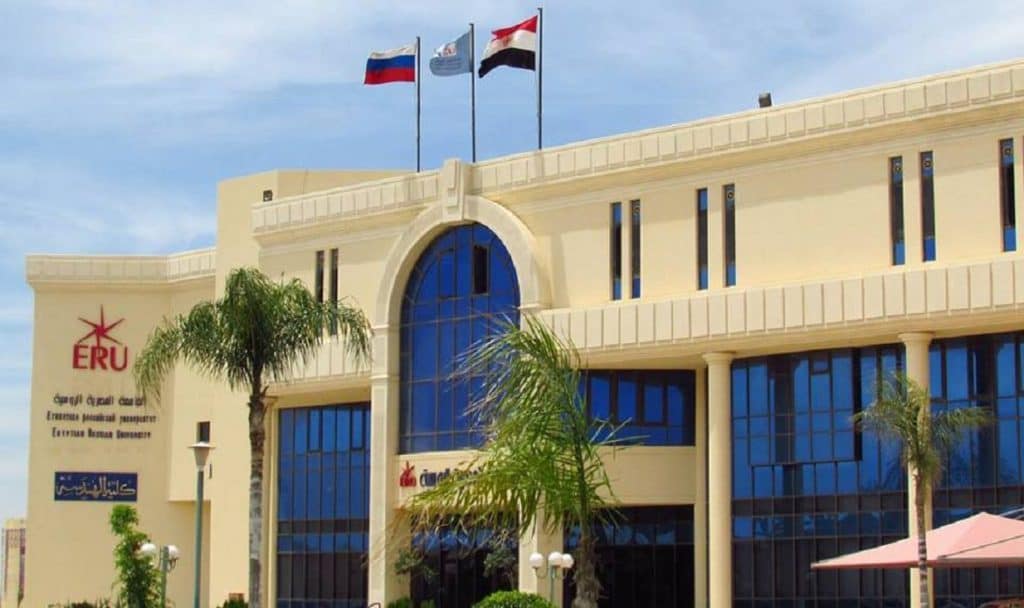Interview with Mohammed El Gebaly
Russia and Egypt are ready to resume a full-format air communication between them. Preliminary agreements were reached about this during a meeting held on July 8, 2019 between the head of the Russian Federal Air Transport Agency, Alexander Neradko and the Egyptian Ambassador in Russia, Ihab Nasr. Therefore, the recent terrorist attacks in Cairo will not affect the timing of the launch of a direct air route between Egypt and Russia. Egypt is waiting for Russia, and the Russians are missing the Egyptian resorts and educational centers.

Especially for World Geostrategic Insights, we talked about this with the Cultural Advisor of the Egyptian Embassy in Russia, the head of the Egyptian educational mission in the Russian Federation, Mohammed El Gebaly.
1. After the crash of the Russian aircraft “A321” in the sky over the Sinai Peninsula in October 2015, relations between Russia and Egypt underwent negative dynamics, which affected not only the economic development of the two countries, but also affected political cooperation. However, already in 2016, the parties agreed to resume direct air communication between the countries and normalize interstate dialogue. Is it logical in this connection to conclude that at present there are no problems between Egypt and Russia and the parties are at the peak of their cooperation?
– At present, we can safely say that relations between Egypt and Russia are in their prime. There are no problems between countries that they could not resolve through negotiations. And this is a great merit not only of the President of Egypt Ablul-Fattah Al-Sisi, but also of the President of the Russian Federation Vladimir Putin, who did a lot to ensure that not only strong, but also friendly relations were established and developed between our states.
We value the friendship with Moscow very much, with which we are connected not only by political moments, defined, for example, by counteracting international terrorism, but also by our vast experience in educational and cultural exchange. So, many students from Egypt with great pleasure want to get higher education in Russia. In addition, the Egyptians are very fond of Russian culture with its unique and indescribable flavor. In turn, the President of Egypt Abdul-Fattah Al-Sisi at the international level has repeatedly emphasized that he considers good relations with Moscow to be one of the priorities of his foreign policy.
2. How are ordinary Egyptians tuned to Russia? Is the influence of Moscow noticeable in the economy, politics, social life of Egypt, and how is this manifested?
– The Egyptians treat with great respect and love for the Russian people and Russian culture. This is manifested, for example, in the great boom associated with the translation of Russian books into Arabic, as well as in the desire of Egyptian students to study in Russian educational institutions. We love Russia, and I’m sure this love is mutual. In Egypt, there are many Russian cultural centers, and, in particular, in Cairo, where there are entire Russian quarters. We have many citizens who know the Russian language, because they either studied in Russia, or their family members are Russian. This unites our countries and makes us not only partners in international politics, but also true friends.
3. In June 2019, an educational competition was announced in Egypt as part of Sino-Egyptian cooperation. The organizers of the competition, which were the Chinese Cultural Center and the National Translation Center of Egypt, offered everyone to translate a book from Chinese into Arabic for the award. The winner received, in addition to a cash prize, the right to present his work at the International Book Fair in Cairo in 2020. In my opinion, this is a very successful initiative, which allows not only to develop relations between Beijing and Cairo, but also to strengthen the positive image of Egypt as an international educational center. In turn, this experience of cooperation in the field of education would be excellent to implement in Russia. And for you, as a cultural adviser and head of the Egyptian educational mission in the Russian Federation, this would be a great start to work. In this regard, is there currently an opportunity to organize such a competition for translators who could translate a literary work from Russian into Arabic and present their work in Egypt?
– There are many awards in the Arab world and Egypt for linguists, and recently it was decided to award a prize for translation from Arabic into Russian and vice versa. This encourages translators to convey the culture and history of our countries. So, Russian translators can submit their work for publication in Egyptian publishers. At the same time, we are considering the possibility of implementing new educational projects that would contribute to the strengthening of Russian-Egyptian relations.
4. Are you ready to become the initiator of such a project? What innovations could be envisaged in the project in order to strengthen the positive image of Egypt in Russia?
– Yes, I’m ready. First, I would suggest defining a list of important literary works (up to 100 titles), and then I can arrange with translation agencies (for example, the National Translation Center in Egypt and the Translation Institute in Moscow), which would allow coordinating the work on the publication of entries by the contestants for two – three years. This is a great opportunity for young people to demonstrate their linguistic skills, gain new knowledge and establish new contacts not only in Russia but also in Egypt. Among other things, with the support of the President of Egypt, Abdul-Fattah Al-Sisi, we plan to declare 2020 the year of humanitarian cooperation between Egypt and Russia, which will be a solid foundation for cultural communication between our peoples and states.
In the period from 2013 to 2018, three international conferences of Russian-Arab cultural communication were organized in the Egyptian Book House in Cairo. With the participation of a large number of Russian orientalists, I was honored to be the director general of the conference at its second and third sessions and I hope to continue organizing such a format of meetings. I also proposed to conclude an agreement between the writers’ unions of the two countries in order to facilitate obtaining copyrights for translation, because it takes a lot of time and sometimes is a serious obstacle.
In any case, Egypt is completely open to Russia and Russian people. We are ready to do everything possible to ensure that cooperation between our countries develops and grows stronger.







